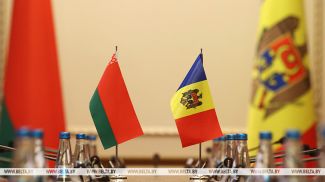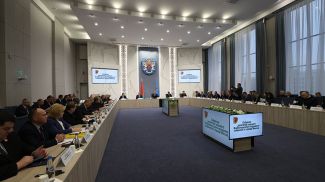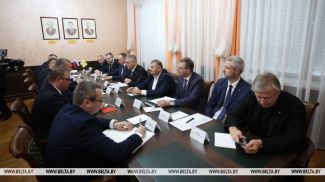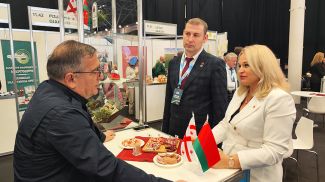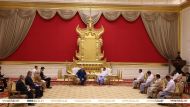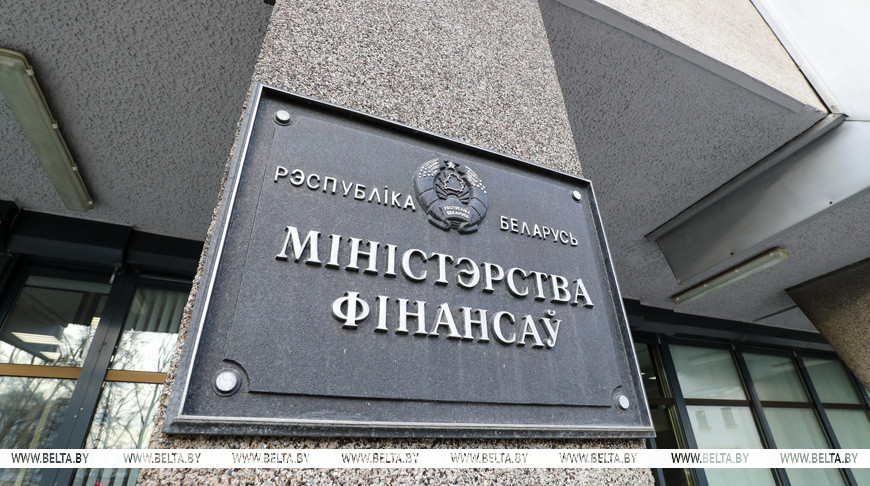
An archive photo
MINSK, 20 October (BelTA) – In an interview with the Belarus 1 television channel, Belarus’ Finance Minister Yuri Seliverstov outlined key aspects of the economic plans being developed for 2026, BelTA reports.
The minister noted that next year’s budget will run a deficit. “It’s about Br4.3-4.6 billion. I’m speaking in national terms because it’s too early to discuss local budgets, but there will also be a small deficit there,” he said.
Yuri Seliverstov explained how budget work is organized. “Previously, we attracted a lot of funds from international organizations for road repairs and other projects while these organizations were friendly to us. Today, we attract resources from the Russian Federation. And these resources for modernization in certain areas create a budget deficit. This strategy will continue next year. We will use these resources to finance infrastructure and production projects, which will continue to create a planned deficit. Several expenses are projected to be slightly higher than revenues, but we are taking a conservative approach to revenue estimates. For now, we are balancing our budget with the remaining budget balances. If revenues improve, we won’t have a deficit. This means we will not use these remaining funds. This is what I mean when I talk about our conservative approach,” he said.
The minister emphasized that the situation is manageable. “To avoid inflated expectations, the deficit will be small, at 1.5% of GDP. In fact, we estimate it will be slightly lower, around 1.45-1.46%. We are forecasting it depending on the nominal GDP. Anyway, it’s entirely manageable,” the minister assured.
Yuri Seliverstov assessed the deployment of Russian credit resources for import-substituting projects, describing the pace as “pessimistic.” “When all this was being considered, we thought it would be done more quickly and utilized at a faster pace. Today, only about half of these resources have been deployed. Such a pace is inadequate, in my opinion. The goal is not merely to renovate facilities to make them more comfortable to work in,” he said.
The ultimate goal is to produce goods Belarus currently imports. This requires a lot of effort. “We want to buy equipment that will allow us to manufacture the goods we import. But acquiring this equipment, installing it, and training people to use it turned out to be more difficult than we and our colleagues in the industrial sector might have imagined,” the finance minister remarked. “It is somehow disappointing. In fact, faster progress would lead to more domestic goods, saved foreign currency, and increased budget revenue. When resources are available, you always want things to happen faster. In this area, I think we’re probably a little behind where we need to be. And the president is encouraging us to do everything faster.”
Similarly, goods exported from Belarus to Russia will be subject to the same VAT as all goods entering Russia.
He acknowledged some risks, including inflationary pressure. “Our Russian colleagues understand that the goods they produce will be somewhat more expensive for us. This is because we don’t only import finished goods, though there are many of those, but also raw materials and other items that are already ‘baked into’ the cost of the final products we purchase. Of course, the prices of these goods will increase in some way. This will have some impact on us as well, though perhaps not immediately, since it’s obvious that not all goods will be produced exclusively after 1 January,” he said.
Yuri Seliverstov expressed understanding of Russia’s policy, linking it to its budget needs. The minister clarified that VAT does not apply to the energy resources and other direct purchases made by Belarus. “I understand the reasoning behind this. In fact, a significant portion of the budget revenue in the Russian Federation was generated from the export of energy resources. And now that prices for exporting these energy resources have fallen, exporting has become more difficult, and budget revenue opportunities are shrinking. Therefore, this is the most realistic way to generate the budget revenue they are missing from the energy sector. We are not currently pursuing this path. And I don’t see such a strong negative impact,” the minister concluded.




